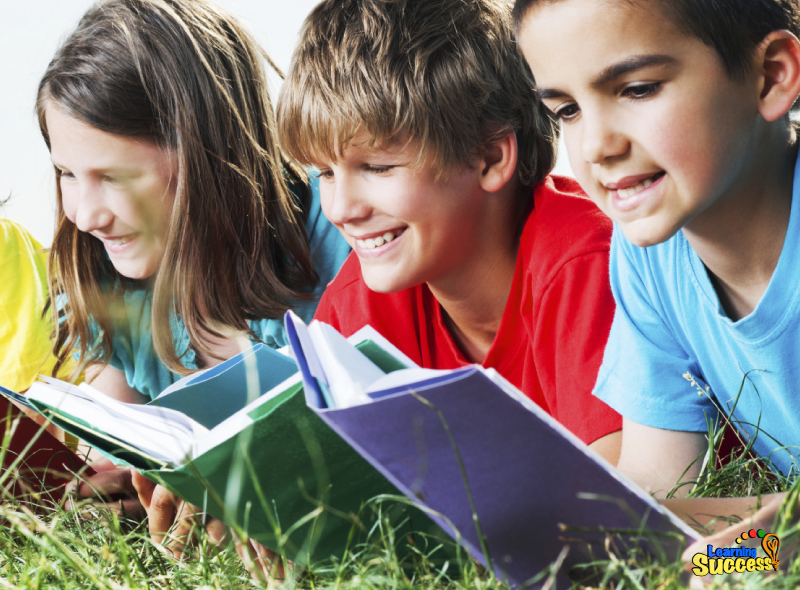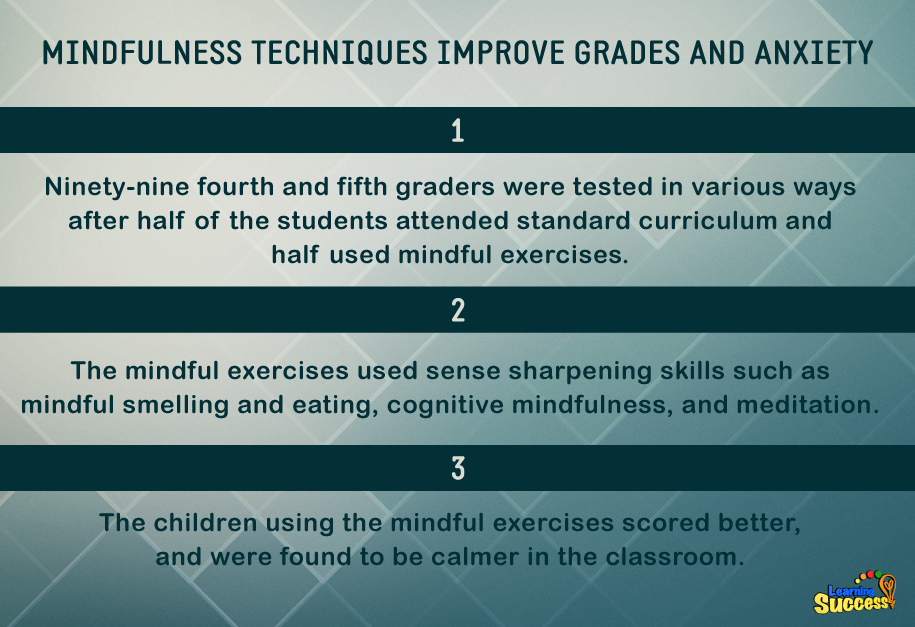
Do your children have trouble concentrating on homework? Does the thought of a looming exam create an impenetrable wall of anxiety? The answer may be in mindfulness, and using it to combat stress and sharpen senses.
Mindfulness relieves stress
Mindfulness is often used by adults to combat stress and solve other health problems. However, recent studies have shown that mindfulness can have all kinds of amazing effects throughout the body. In adults especially, it can combat stress, protect the heart, shorten migraines and possibly even extend life.
However, a new study suggests that the effects are also powerful in kids as young as nine, to the point that practicing mindfulness improves everything from social skills to math scores.

Students practicing mindfulness have a marked improvement
The article Mindfulness Exercises Increase Kids' Math Scores shares the story of students who have attended mindfulness classes. These classes taught techniques like healthy eating, breathing exercises, meditation, and looking at things from another point of view.
The lessons showed important sense-sharpening exercises, like mindful smelling and mindful eating, along with cognitive mindfulness. For example, they practiced expressing more gratitude and performing more kind acts to others.
These 99 fourth and fifth graders were in the classes for four months, after which they showed markedly better test scores in all areas. Children with the mindful intervention had 15% better math scores specifically, attributing the academic gains to these new practices.
Mindfulness improves social behaviors
Even better, these students also improved in their social interactions and self-confidence. Students showed 24% more social behaviors, were 24% less aggressive, and perceived themselves as 20% more pro-social. They outperformed their peers in numerous facets, including their cognitive and emotional control, stress levels, optimism and empathy, and less aggression.
Though more research is required to determine the full extent of these practices' effects, that they don't affect academic work -- but seem to more typically improve it -- suggests that it could easily be implemented in school.
Key Takeaways:
Using mindfulness in the classroom has proven to be beneficial to young students who may struggle in certain classes. Though more research is needed, mindfulness may just be a positive addition to many classrooms.
Do You Need help with a Learning Difficulty?
Our simple online analysis will help you get to the core of the problem and find the right solution for you.
Understanding how to help someone with a learning difficulty starts with understanding which micro-skills are affected. When you learn which of the micro-skills is the problem, you will then be on your way to solving it.
You'll also learn how to:
- Build confidence
- Enhance Learning ability
- Eliminate avoidance
- Build grit
You can get this analysis for free by filling out this simple form. This will help you get to the bottom of a learning difficulty and provide you with a solution. If you are ready to put this problem behind you click the button below and fill out the form.










